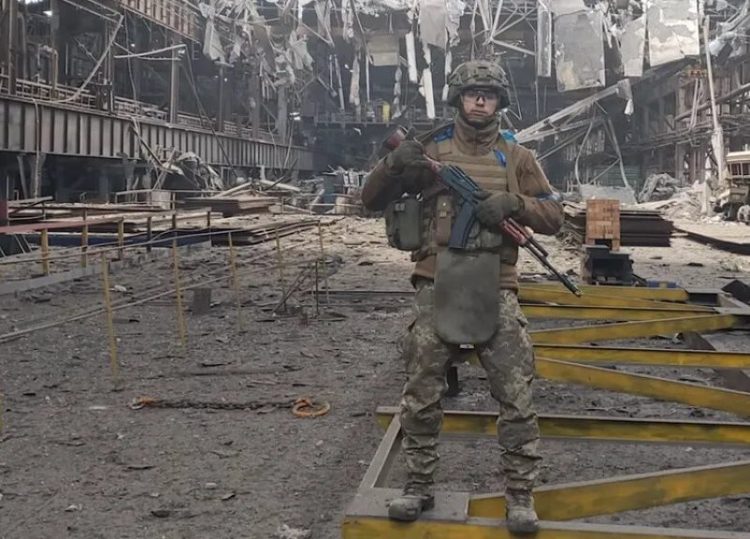Daniel Penny manslaughter charge dismissed as jury breaks for weekend
Daniel Penny jurors struggled to reach consensus on top charge, manslaughter, which carries a max sentence of 15 years in prison for the death of Jordan Neely.

NEW YORK CITY — Jurors on the Daniel Penny chokehold trial returned to deliberations for a fourth day Friday for just an hour before telling the court they could not come to an agreement on the top charge, manslaughter, as they weigh the fate of a 26-year-old Marine veteran and architecture student accused of killing a mentally ill homeless man who threatened to kill people on a Manhattan subway car.
Around 11 a.m., the jurors sent a note to the court stating, "We the jury request instructions from Judge [Maxwell] Wiley. At this time, we are unable to come to a unanimous vote on count 1 – manslaughter in the second degree."
The judge sent them back to deliberate more, but they told the court shortly after 3 p.m. that they still could not reach a unanimous decision.
The charge requires prosecutors to prove that Penny acted with recklessness when he grabbed Jordan Neely in a chokehold. Neely had barged onto the train while high on drugs, threatening to kill passengers during a psychotic episode, according to trial testimony.
DANIEL PENNY TRIAL: JURORS ASKED TO SEE KEY EVIDENCE AGAIN DURING DELIBERATIONS
The judge initially ruled that the jury could not deliberate on the second charge unless they found Penny not guilty of manslaughter by some reason other than that the chokehold was justified. However, after jurors said they were deadlocked a second time, Assistant Manhattan District Attorney Dafna Yoran asked to have the top charge dismissed to allow the jury to debate the lesser charge of criminally negligent homicide, which carries a maximum punishment of four years in prison.
The judge agreed and sent the jury home for the day. They will resume deliberations Monday, only on the second charge.
"Manslaughter in the second degree is dismissed," Wiley told the jurors. "What that means is you are now free to consider count two. Whether that makes any difference, I have no idea."
Wiley earlier gave the jurors "Allen charge" instructions after giving the attorneys time to review, but they still failed to reach a consensus.
DANIEL PENNY TRIAL: KEY EVIDENCE JURORS ASKED TO SEE AGAIN DURING DELIBERATIONS
Allen charges refer to jury instructions given to a hung jury urging them to agree on a verdict. They have a controversial history, with critics warning they can push jurors to change their views under peer pressure. They get their name from an 1896 Supreme Court decision in Allen v. United States.
Penny's defense asked for a mistrial to be declared, but the judge said he would give jurors more time and read them the Allen charge instructions.
Wiley told the jurors their vote must be unanimous, and if they cannot reach a unanimous verdict on the top charge, a new trial will have to be set with a new jury.
"You’ve been a very good jury, and there’s no reason to think that any other jury in a future trial will be any more intelligent or fair than you are," he said.
Wiley asked them not to violate their consciences but to look at the facts again with a "fresh slate."
"Given the factual complexity of the case, I don't think it's been too long," he said.
Wiley sent them back to the jury room just after noon to pick up deliberations, and 30 minutes later they asked the judge to clarify the definition of a
"reasonable" person as they continue to weigh whether Penny's actions were reasonable and justified or criminally reckless.
MANHATTAN DA'S DOWNPLAYING OF DANIEL PENNY'S POTENTIAL PUNISHMENT ‘IMPROPER AND MISLEADING’: DEFENSE
During a lunch break, Penny attorney Steven Raiser told Fox News the jury's latest question showed they were thinking hard about the top charge.
"They are being very deliberate and have since sent a note regarding the reasonable person standard," he said. "This reflects on the justification charge. If the jury does find the Government failed to disprove justification, the charges, including the top count, will be dismissed."
"A deadlocked jury on the top charge is not a victory for the defendant in a case that should never have been brought to begin with," said Paul Mauro, a former NYPD inspector. "Daniel Penny is a young man spending thousands on attorneys, he faces a civil case, and a district attorney’s office that has chosen ideology over law enforcement may well retry him if we get a mistrial. His liberty remains at risk. This is not justice."
Neely was a 30-year-old with schizophrenia who told straphangers that someone was going to "die today" and that he didn't care about going to prison for life. Penny grabbed him from behind in a chokehold to stop the outburst.
Neely later died. He had an active arrest warrant at the time. He was high on K2, a synthetic marijuana drug that functions as a stimulant, and his lengthy criminal record included a 2021 assault on a 67-year-old woman at another subway station.
JORDAN NEELY'S DAD FILES LAWSUIT AGAINST DANIEL PENNY AFTER SUBWAY CHOKEHOLD
Penny remained at the scene and spoke with responding officers. He also agreed to speak with NYPD detectives at the 5th Precinct building.
"He was talking gibberish... but these guys are pushing people in front of trains and stuff," he told investigators. There were more than 20 subway shoves in the year before Penny's encounter with Neely.
Just three days earlier, a subway rider had been stabbed with an ice pick on a J train, according to reports from the time. It was about a month after a PBS reporter got sucker punched on a No. 4 train. There was a shove a week before that, and the victim hit the side of a moving R train and survived.
In that climate of fear, witnesses said they were terrified by Neely, who shouted death threats at them.
Witness Ivette Rosario, a 19-year-old student, testified that Neely shouted someone would "die that day."
Penny faces a maximum punishment of 15 years in prison if convicted on the more serious charge.
Fox News Research contributed to this report.



